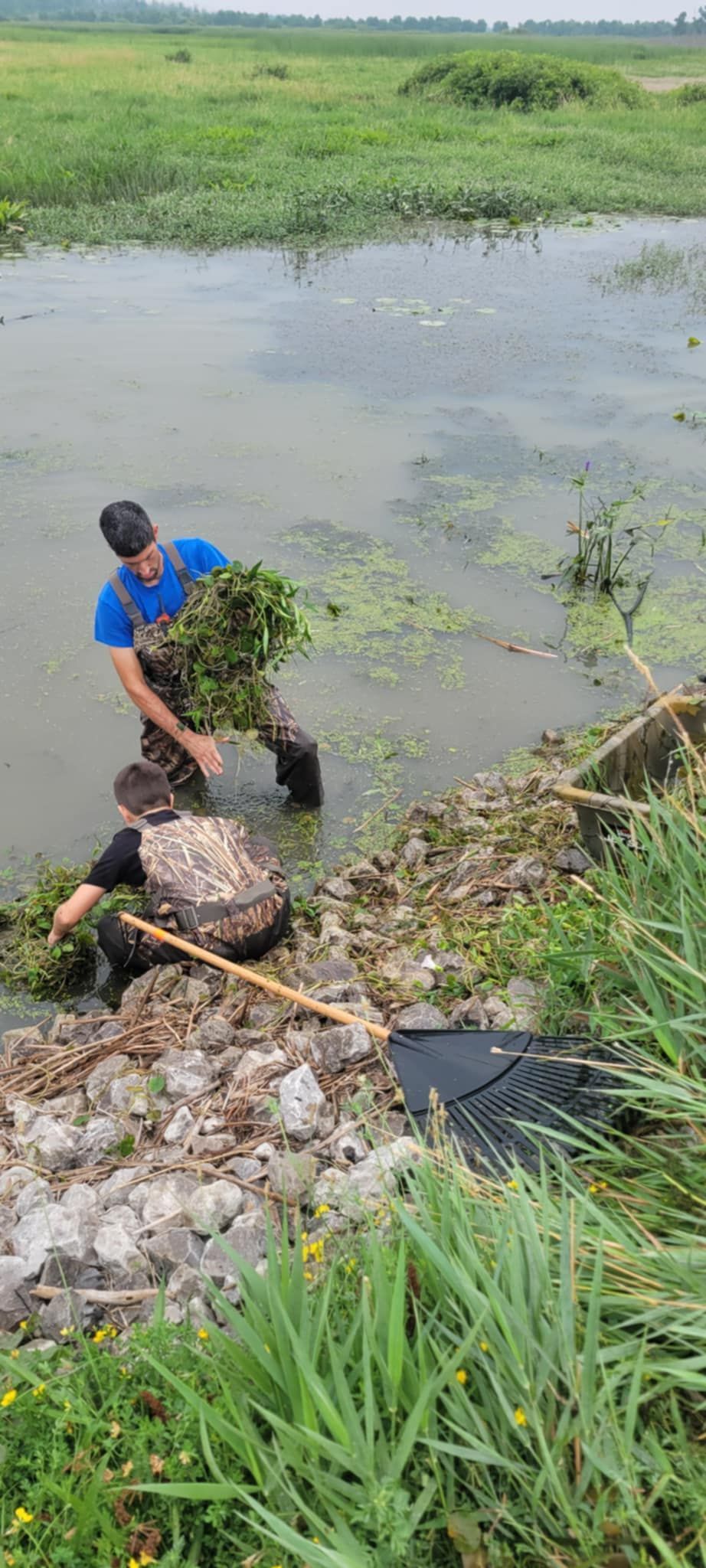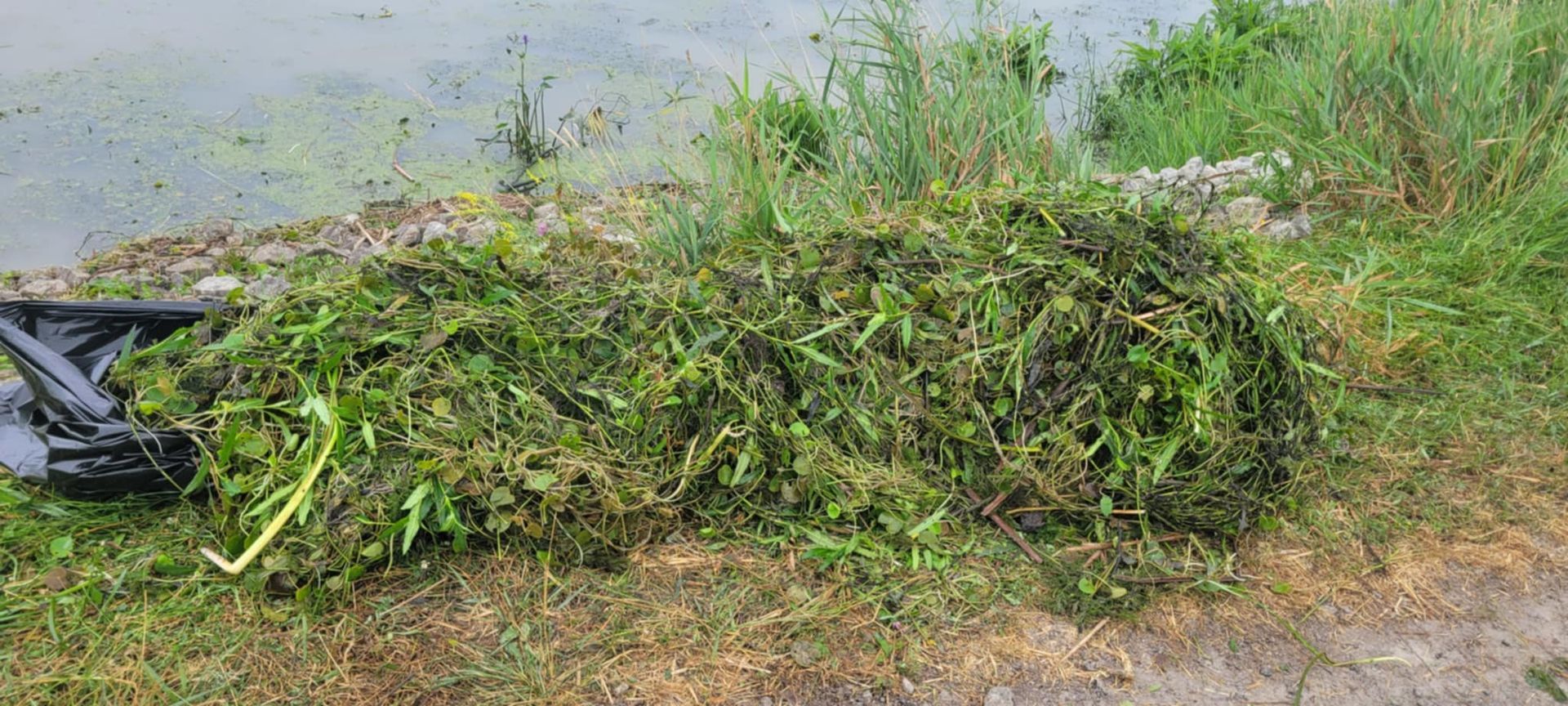On the Ground: Enhancing Waterfowl Habitat at Shiawassee River State Game Area
On Saturday, July 26, 2025, MUCC's On the Ground program partnered with the Michigan DNR’s Wildlife Division to remove aquatic invasive species at Shiawassee River State Game Area in Saginaw County. At approximately 10,000 acres, this game area is the largest managed waterfowl hunting area in Michigan, making invasive species management critical.
European Frog-bit Removal
After training with the DNR Wildlife Biologist to identify the invasive European frog-bit compared to native species, our team moved to the field to test their knowledge. Volunteers mechanically removed a total of 1,500 lbs of European frog-bit, an invasive aquatic plant that outcompetes important native species, impacting fish and waterfowl resources. This project directly improves habitat for wood ducks, a popular waterfowl species in Michigan. Invasive plant materials were removed from the site in trash bags to prevent any translocation back into the refuge or the adjacent river system.
Why is it Important?
Although some waterfowl hunters truly only focus on the season and their harvests, there is a fair amount of work that goes into the habitat improvement side on managed lands to provide resources desirable by the species. Clean-ups and invasive species removal are just a few forms of habitat enhancement to help improve the area for both the species and individuals looking to utilize the land recreationally. Invasive species are generally not native and cause some type of harm to the environment in which they occur. Many leafy invasive plants contribute to competition with other native species for resources like light. As a free-floating aquatic plant, frog-bit can intertwine its stems and roots, creating a dense mat on the surface of the water. The dense populations can then limit the light source for submerged plants while also decreasing oxygen levels in the water column, negatively impacting the native food resources that waterfowl in the area rely on. Alongside minimizing the light sources, frog-bit can also impede recreational traffic.
Learn More
Want to help improve fish and wildlife habitat in your area? Visit our website at mucc.org/on-the-ground for a list of upcoming projects. Our mission is to conserve and enhance Michigan’s public lands and wildlife through volunteer stewardship. We invite both consumptive and non-consumptive users to band together and improve fish and wildlife habitat across the state. Common habitat projects we complete include native plantings, invasive species removal, brush pile building, river cleanups, and more. Our projects are built for all ages, so bring your friends and family and come join us! Registered volunteers receive lunch and a free appreciation gift for their efforts. Registration links with more event details can be found on our website.
Recent Posts







